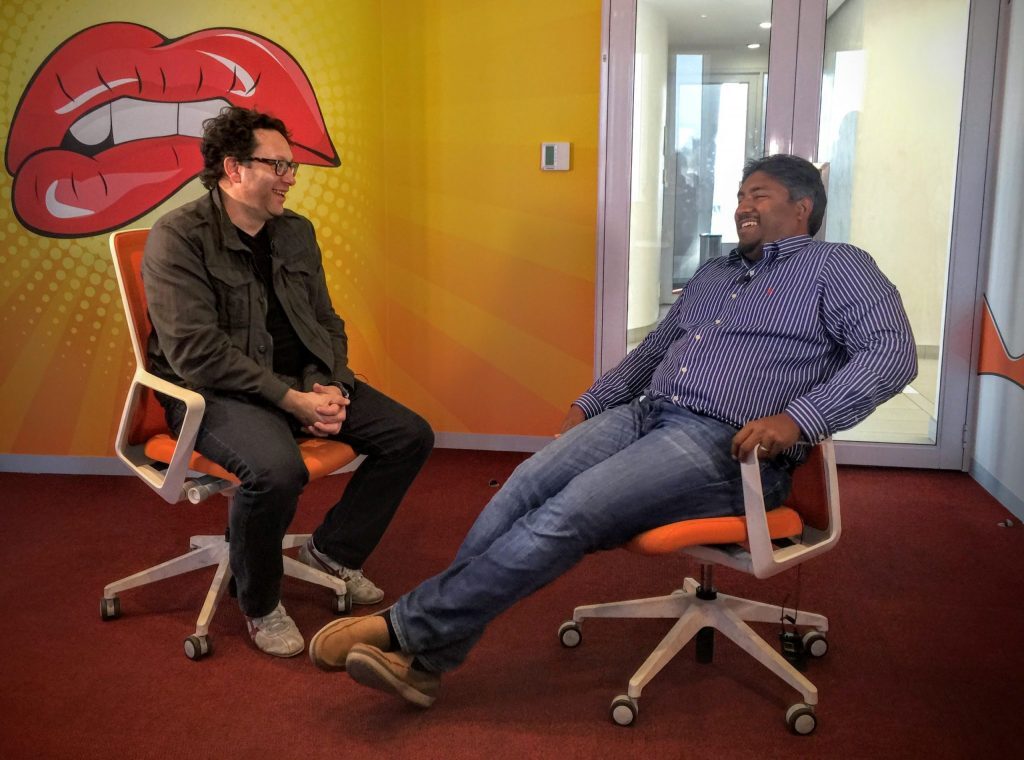Later this year Vinny Lingham will launch a service that has the potential to solve a persistent problem that South Africans seem blissfully unaware of: identity theft.
“We are trying to solve the identity problem for consumers,” he told me last week when he returned to South Africa to speak at several conferences.
The affable Lingham is now best known as one of the judges in the local edition of Dragon’s Den. But in geek circles he’s a legend who has built and sold three significant tech startups. The last two Yola (for building websites) received US$30m in venture funding and Gyft (to aggregate gift cards and other loyalty schemes) which he sold for a reported $50m to First Data, the largest payments company in the world. He started his first company (Clicks2Customers) when he was 24. He says it “drove more than $100m in annual paid-for search marketing for its clients”.
Now, Lingham is turning his knack for spotting a good idea towards the pressing problem of identity fraud.
“It cost hundred of billions of dollar in the last year alone,” he says, pointing out how companies like US retailer Target and Sony had tens of thousands of people’s personal details, sometimes credit cards, stolen in massive hacks, or data breaches as they are known. “There have been lots of high-profile data breaches, putting consumer data out there” on the internet. “It is increasing, happening more and more often.”
Revelations in the past week that fraudulent cellphone SIM cards have been used to reset bank account passwords (which are verified by SMS) and costing some consumers tens of thousands of Rands are just the tip of the iceberg.
“In South Africa there are a large number of people who have been affected by identity theft. And it’s going to get worse,” he warns. “I think this is a huge area of growth, in a bad way. Cyber crime is growing.”
This is the problem his new company, Civic, which he announced in January had attracted venture funding in California where he is now based, will tackle.
“It’s a very unique company. I think it’s the first of its kind. The problem we’re solving is that identity theft has gone worldwide. And there is no mechanism or gateway that controls what companies do.”
Once your personal details (name, address, date of birth, ID number, etc) have been stolen, they can be used to get credit cards, or retail store credit, apply for tax refunds, or a bank account opened. The amassed debt is mostly left to the innocent victims to pay off.
Identity theft caused losses of $15.4bn in 2014, according to figures from the US Justice Department, released in September 2015. In 2012 it was $24.7bn, the previous time the report was released.
About 7% of American adults, or an estimated 17.6m people 16 or older, had personal information compromised in 2014, the DoJ’s Bureau of Justice Statistics reported.
“A lot of the problems stem from the fact that consumers not doing the wrong thing, but companies are not able to protect the information they should protect,” he says. But he warns, “you shouldn’t email your password. Email is not secure.”
It’s one of my persistent bugbears: companies who blithely ask you to email a copy of your ID document or passport as proof of identity not realising that email is the least secure way to transmit such information. The chances are those copies are never stored securely, or are left on company laptops that themselves don’t have proper security settings. South Africa has been immune to the scale of identity theft that has ravaged the US for the last decade. But not for long as faster broadband speeds bring with it more opportunities for cyber crime.
Sadly, Lingham’s new company is likely to be just as useful at home as it is in the States.
This article first appeared on Financial Mail.
